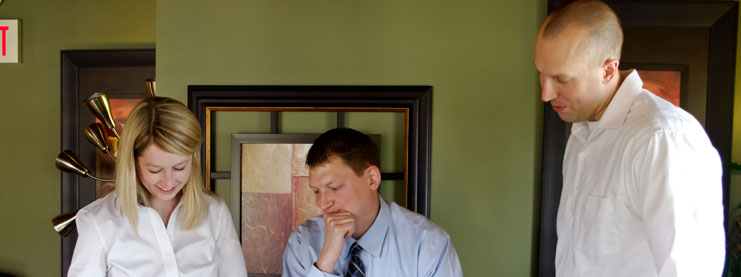Copyrights
The ZPS Group is experienced at registering copyrights, enforcing rights of original works, and licensing matters relating to copyright. We provide a variety of services including the following:
- Preparation and prosecution of copyright registrations
- Infringement opinions
Copyright protection extends to original works of authorship such as literary, dramatic, musical, and artistic works. For example, works of poetry, novels, movies, songs, computer software, and architecture are all protected by copyright. Several categories of material are generally not eligible for copyright protection including those protectable by patents (inventions or discoveries) or trademarks (source identifying words, phrases, symbols, or designs).

A work is under copyright protection at the moment the work is created and fixed in a copy or phonorecord. A “copy” is an object from which the work may be read or visually perceived either directly in the case of a book or other printed materials or with the aid of a device such as a computer in the case of materials like a computer program. A “phonorecord” is an object that embodies a fixation of sounds. For example, CDs and cassette tapes are phonorecords.
The copyright owner is generally the author of the work and has the exclusive right to reproduce the work; prepare derivative works; sell, rent, lease, or lend copies of the work; perform or display the work publicly; and authorize others to do the same. A copyright for a work originally created on or after January 1, 1978 is ordinarily has a term lasting for the life of the author plus an additional 70 years.
While a work does not need to be registered with the U.S. Copyright Office to be protected, a work must be registered in order to bring a lawsuit for infringement of a U.S. work. In addition, registration provides a public record of a copyright, and works registered within three months after publication or prior to infringement of the work are eligible for statutory damages and attorney’s fees in a successful litigation. Further, if a work is registered within five years of publication, a court will consider the registration prima facie evidence of the validity of the copyright and of the facts stated in the certificate of registration.
